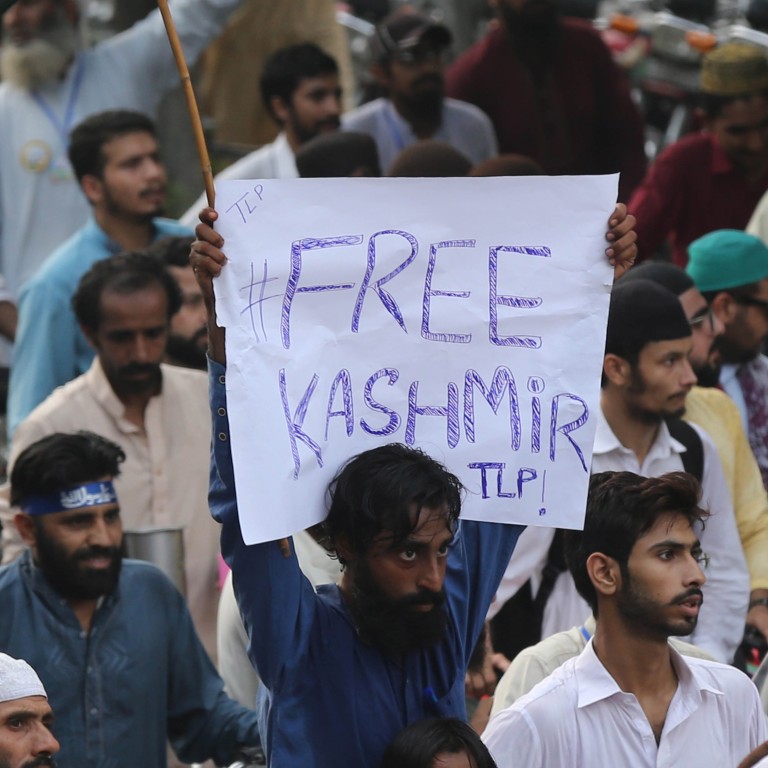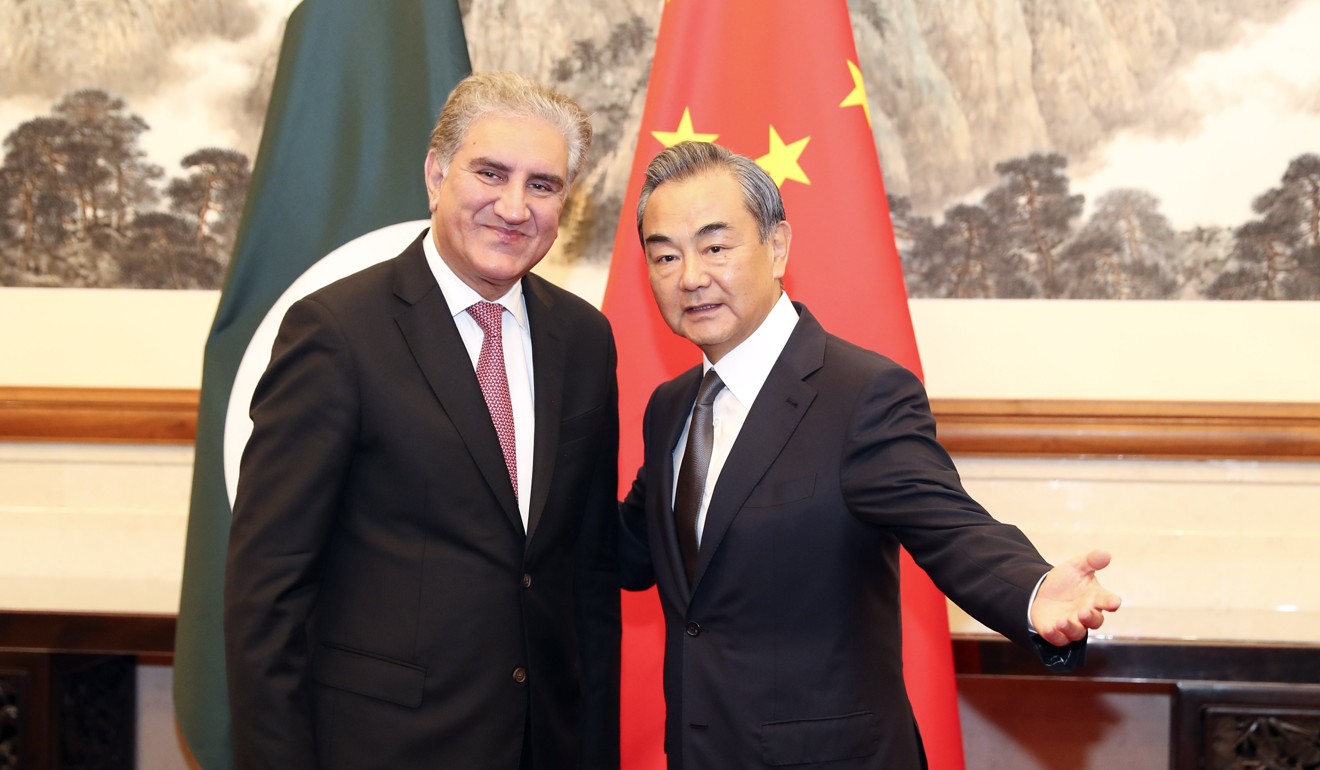
China says it will support Pakistan ‘upholding its rights’ in Kashmir row with India
- Beijing urges calm after Indian government moves to strip disputed territory of its special status but offers support to its Pakistani ally
- Pakistani foreign minister Shah Mahmood Qureshi tells counterpart Wang Yi that he is confident China will ‘uphold justice’ on this issue
China has said it would support Pakistan defending its “legitimate rights and interests” in the Kashmir crisis during an emergency visit by the country’s foreign minister Shah Mahmood Qureshi on Friday night.
The meeting in Beijing between Qureshi and his counterpart Wang Yi came ahead of a visit by the Indian foreign minister on Monday and was the latest in a series of high-level diplomatic meetings between China and Pakistan since India moved to revoke Jammu and Kashmir’s special status.
Qureshi briefed Wang on Pakistan’s position and potential responses to the situation, and said he had faith that China would “uphold justice on the Kashmir issue,” according to a statement from China’s foreign ministry.
Wang said China was “seriously concerned” about the recent escalation of the situation, and called for dialogue between Pakistan and India to maintain peace in South Asia.
“China will continue to firmly support Pakistan in safeguarding its legitimate rights and interests and continue to preside over justice for Pakistan on the international stage,” he said.
Wang also said that both India and Pakistan were “friendly neighbours” of China, and discouraged unilateral action by either party.
Will India’s new line on Kashmir derail ties with China?
On Monday India revoked article 370 of its constitution, which grants special powers, like the right to its own constitution, to Jammu and Kashmir.
It will also break off the mainly Buddhist region of Ladakh from the rest of the Muslim-majority state to form two new territories – both to be federally administered.

Both India and Pakistan claim the whole of Kashmir, which was partitioned between the two following the end of British rule in 1948, and have subsequently fought wars over the territory.
Following Monday’s announcement, Pakistan downgraded its relations with its neighbour by sending back India’s envoy, suspending trade relations and ending some cross-border train routes.
Is India’s Kashmir move an attempt to shift its Muslim demographic?
An adviser to Pakistan’s Prime Minister Imran Khan tweeted on Thursday that the country would ban Indian films from being shown in the country.
The following day Pakistan’s ministry of information and broadcasting announced it would ban all cultural exchanges with India, under the slogan “Say No to India”.
China has been speaking to both countries as the conflict escalates, in particular with its close ally Pakistan.
Qureshi’s arrival on Friday had been anticipated since he told Pakistan’s parliament on Wednesday that he may “dash off to Beijing” to discuss the situation.
On Wednesday top Chinese and Pakistani diplomats held consultations on UN affairs in Beijing, and on Thursday China’s vice foreign minister Luo Zhaohui met Pakistan’s new ambassador to China Naghmana Alamgir Hashmi.
But China has its own territorial dispute with India over the part of Kashmir it controls.
One Tuesday it described New Delhi’s actions as “unacceptable”, prompting an angry response from India which said it “does not comment on the internal affairs of other countries and similarly expects other countries to do likewise”.

